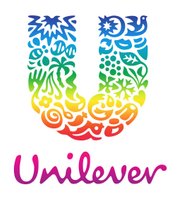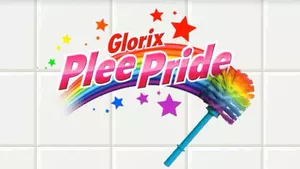Click on pictures for larger image.
Marketing the Rainbow
This article was last updated on Oct 31, 2022
Company strategy
Unilever is one of the world’s most culturally diverse companies and is committed to developing an inclusive culture which acknowledges the contribution of all employees, regardless of their gender, age, race, disability, sexual orientation or any other background. They have a Global Diversity Board providing the overarching vision, governance and target setting for inclusion and diversity across their business.
In 2019, CEO Alan Jope shared a message of Unilever’s support and belief that every member of the LGBT+ community must be treated fairly by society not just for one moment in the year but every day, every week, every month and every year.
Over the years, they have been actively participating in Marketing the Rainbow: both on corporate level as well as many individual brands. Here is a look at their cosmetics division.
See also the separate articles for Axe/Lynx, fmcg, food and Ice Creams.
1997 Omo, France
A very early campaign by Unilever using gay tease was made by OMO in 1997. A short man shows up at a karate class and everyone stops and looks at him - he's wearing a pink robe instead of the requisite white one. They all come over as if to bully him. Later we see the man in the shower next to a much larger man, and they both share a looks at each other's genitals. Predatory or shared interest? It's hard to tell. This ad (dubbed in English) is for Omo's phone support service called Careline. The spot won a Gold Euro EFFIE in 2000.
© 2022 BRIGHT Marketing Solutions
In 2007 Robijn had openly gay magician Hans Klok (who rose to international fame due to his residency in Las Vegas with Pamela Anderson) talk about its virtues.
Another commercial in this series features gay Dutch scream queen and singer Gordon: the wordplay is lost in translation, but his nickname "Goor" means 'dirty'. Gordon was also spokesperson for another Unilever brand, together with his frenemy singer Gerard Joling: Knorr.
Robijn, the Netherlands
2003 All, USA
This American commercial, however, was not received well by LGBT critics for the derogatory depiction of a gay character. Part of a $30 million marketing effort for the brand, the ad features a real-life butler and ran in prime time and daytime on network and cable, including MTV, Lifetime and Oxygen. AdRespect: "While the ad suggests a classic rivalry for attention and perfection, the humor is almost entirely based on the flamboyance of the gay florist, and at his expense. It never reaches beyond stereotype."
As early as 1992, the fabric softener Robijn hired gay fashion designer Frank Govers for a series of commercials that became legendary. It was all about his love for colors and how to keep them fresh. Not all could be retrieved ("Flower Market" seems lost forever), but here are The Blouse and Monks.
Glorix, Plee Pride Amsterdam 2016
Glorix wanted to advertise in an original way with a marketing stunt. Every year more than 500,000 people visit the Gay Pride in Amsterdam and of course all these people have to pee at some point. This was the perfect opportunity for Glorix to let visitors experience the brand experience of their cleaning products.
Advertising agency Alfred had come up with the idea to make toilets available from residents of the Prinsengracht during Pride. These toilets were pimped with streamers, balloons, a pink carpet, advertising signs and provided with a hostess. This is how the Pleepride was born (Note: "Plee" can be translated as "Loo"). These toilets were not only clean and fresh, but also very cozy because of the promotion ladies. Money collected by the Glorix toilet ladies was donated to charity. In this way they were able to completely unburden the participating homeowners
This PR stunt not only resulted in free publicity and brand awareness in Het Parool, Linda, Advertising, Marketing Tribune and Glamor, but also many smiling faces of people who could use the toilet during the Canal Parade.
Case study: Unilever
Branche: Detergents

